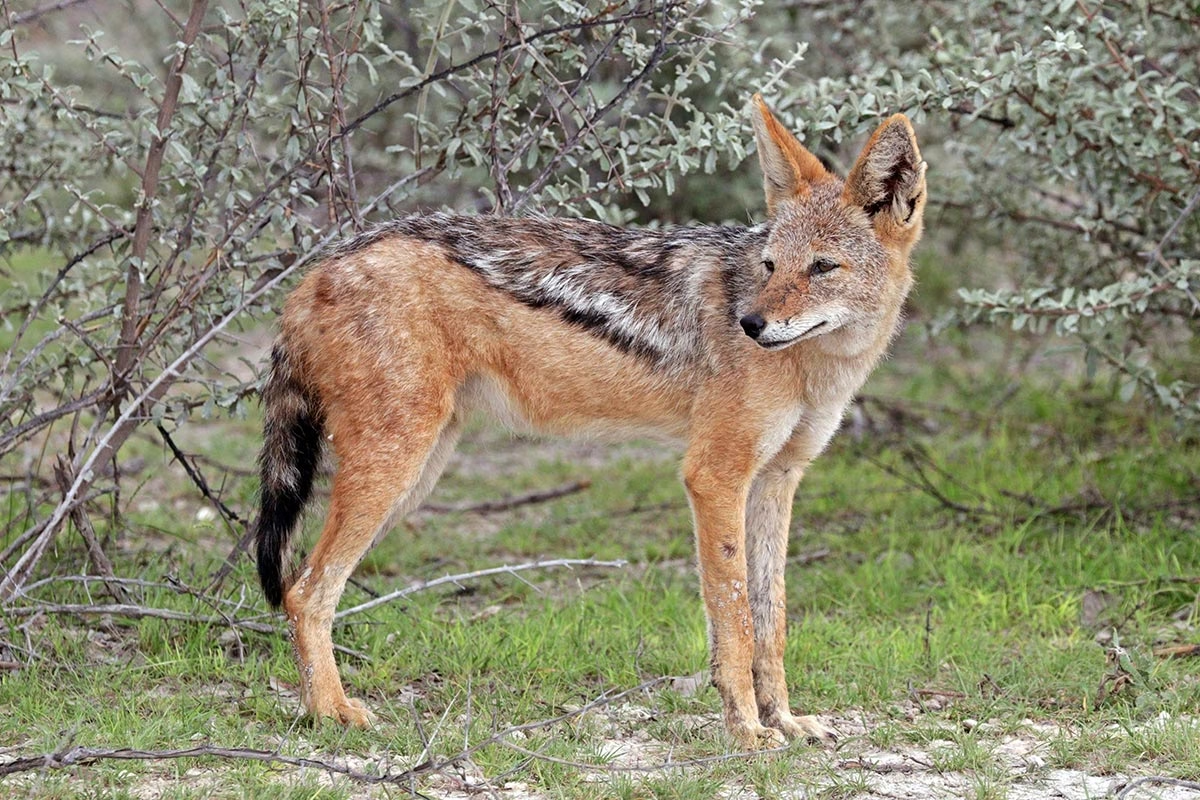5 Fascinating Facts About the Black-Backed Jackal
The black-backed jackal (Canis mesomelas) is one of Africa’s most adaptable and resourceful predators. With its distinctive black saddle-like marking and cunning behavior, this small canid has carved a niche in the wild as both a skilled hunter and an opportunistic scavenger. Here are five fascinating facts about the black-backed jackal.

1. The Black-Backed Jackal Is One of the Oldest Canids
Fossil evidence shows that the black-backed jackal has remained virtually unchanged for over 2 million years. This remarkable consistency in form and behavior highlights its evolutionary success. Found in two distinct populations in southern and eastern Africa, the black-backed jackal thrives in diverse habitats, from savannahs to coastal areas.
2. It Is an Omnivorous Opportunist
Black-backed jackals have a varied diet that showcases their adaptability. They hunt small mammals, birds, and reptiles and scavenge from carcasses left by larger predators like lions or leopards. They also consume fruits and insects, making them true omnivores. Their scavenging role is vital for maintaining the ecosystem by cleaning up decaying matter.
3. Black-Backed Jackals Are Highly Vocal
Communication is a key feature of black-backed jackals, and they are known for their wide range of vocalizations. They howl to mark their territory, warn of danger, or reunite with their mates. Their calls often have a yipping or wailing quality, and at dusk or dawn, their eerie howls contribute to the iconic sounds of the African wilderness.
4. They Form Monogamous Pairs
Black-backed jackals are monogamous and typically mate for life. A pair will work together to raise their pups, sharing responsibilities like hunting and defending their territory. Pups remain dependent on their parents for several months, learning hunting and survival skills through observation and play.
5. Jackals Are Surprisingly Intelligent and Resourceful
Black-backed jackals are incredibly smart, often employing clever strategies to secure food. For instance, they’ve been observed working in pairs to distract a larger predator like a lion while one steals scraps from a kill. They also exhibit problem-solving skills when hunting or navigating obstacles.
Conservation Status
The black-backed jackal is classified as “Least Concern” by the International Union for Conservation of Nature (IUCN). Its adaptability to different habitats and food sources has allowed it to thrive despite habitat changes and human expansion. However, in some areas, they are viewed as pests due to livestock predation.

